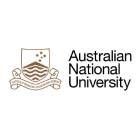Introduction to Nuclear Science
- Posted by The Australian National University
- Home
- Courses
- The Australian National University
- Introduction to Nuclear Science
Introduction to Nuclear Science
Description The impact of nuclear science in Australia is broad ranging and spans diverse public agencies and private industries relating to national security, the environment and biomedicine. Using a combination of self-study, lectures and interactive sessions, this Micro-credential from ANU offers an introduction to the building blocks of visible matter…
Categories
COURSE DESCRIPTION
Description
The impact of nuclear science in Australia is broad ranging and spans diverse public agencies and private industries relating to national security, the environment and biomedicine. Using a combination of self-study, lectures and interactive sessions, this Micro-credential from ANU offers an introduction to the building blocks of visible matter in the Universe. Studied in a graduate level learning environment, this micro-credential aims to develop a deeper understanding of atomic nuclei, radioactive decay processes, and radiation detection methods.
You will discover the fundamental forces that bind the heart of the atom together, as well as theoretical frameworks that are used to describe and predict their behaviour. You will also explore the practical aspects of nuclear technology and measurement techniques, and their applications in industry. Part of the offering will be hosted at the Australian Heavy Ion Accelerator Facility. Here, you will undertake a hands-on introduction to nuclear measurement techniques with real-world research equipment.
In the context of the wide application of nuclear techniques, this micro-credential aims to introduce students to the key concepts in nuclear physics. These include:
- Fundamental nuclear properties.
- Nuclear binding energy and stability.
- Nuclear transmutation and radioactive decay processes.
- Exponential decay law and secular equilibrium.
- Nuclear reactions, including fission and fusion.
- Basic nuclear models and understanding nuclear data.
Learning outcomes
Upon successful completion, participants will have the knowledge and skills to:
- Explain basic properties of atomic nuclei and the forces that bind them.
- Recognize common types of nuclear reactions and radioactive decay.
- Explain the origin and properties of radiation emitted by unstable nuclei.
- Identify and interpret key characteristics in nuclear data.
- Interrogate web-based nuclear databases as tools for problem solving.
Indicative assessment
- Assignment 1: Exercise problems 40%; LO1-3
- Assignment 2: Measurement activity on radioactive decay half-lives; 60%; LO4,5
Assumed knowledge
This micro-credential is taught at graduate level and requires completion of an appropriate AQF7 qualification or equivalent professional experience.
Physics and/or mathematics at Year 12 (or equivalent), or relevant professional experience is desirable but not a formal requirement.
Micro-credential stack information
This micro-credential is undertaken as a stand-alone offering. Additional micro-credentials relating to radiation detection and measurement, as well as the nuclear fuel cycle and space radiation are currently underdevelopment. We welcome any enquiries relating to expanding micro-credential offerings in nuclear science.
REQUIREMENTS
This micro-credential is taught at graduate level and requires completion of an appropriate AQF7 qualification or equivalent professional experience. Physics and/or mathematics at Year 12 (or equivalent), or relevant professional experience is desirable but not a formal requirement.
EDUCATIONAL INSTITUTION
The Australian National University (ANU) is a public research university and member of the Group of Eight, located in Canberra, the capital of Australia. Its main campus in Acton encompasses seven teaching and research colleges, in addition to several national academies and institutes.
The Australian National University (ANU) is one of Australia's premier universities and ranked amongst the best in the world. It was created by Federal Parliament in 1946 to drive the nation forward and advance Australia's international standing through research and education of the highest quality. ANU is distinctive because of its national mission, international focus and impressive record in research and education for undergraduate and postgraduate students. Our leading researchers drive our educational programs and shape the ANU learning experience. Students at ANU enjoy excellent staff-student ratios and great employment prospects. They benefit from award-winning and challenging teaching, first-rate facilities and the collegial atmosphere of a residential campus.




